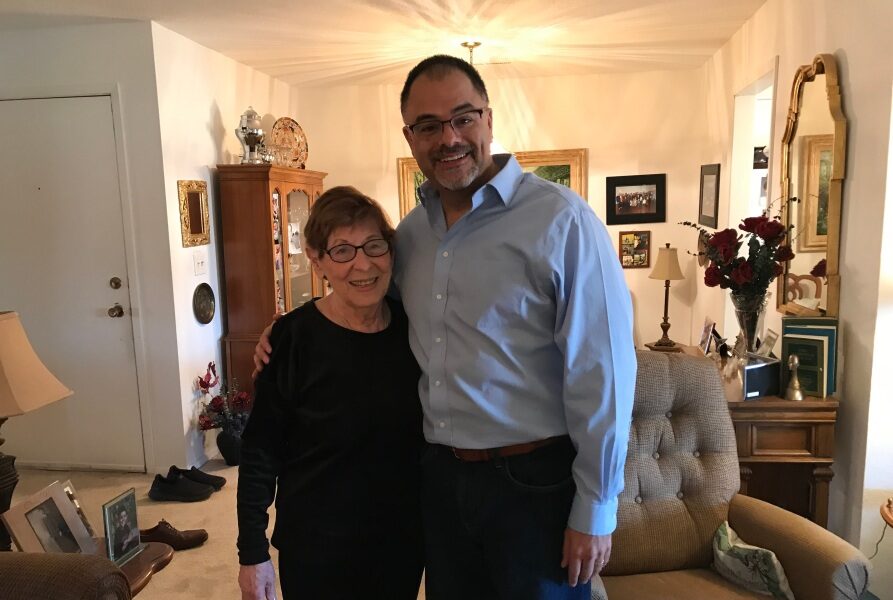

The day after my talk in Cedar Rapids, I visited the home of 94-year-old Aziza Igram whose family is central to the book.
While I was still writing Muslims of the Heartland: How Syrian Immigrants Made a Home in the American Midwest (NYU Press, 2022), I became determined to take the book back to the places where its stories unfolded from the 1890s to the 1940s. At first, I thought that perhaps I should do one big road trip and invite people to come along as I visited all the major sites of my book. When it became clear to me that this would be too hard, I decided to contact just a few places to ask if they would be willing to host me. Cedar Rapids, Michigan City, and Dearborn said yes, and I was on my way. But then as more people heard about the book, I started to receive more invitations–a total of 22 so far. The single best part of the tour for me has been connecting with the descendants of the historical figures about whom I write and with the Midwesterners who identify with their stories, whether Arab or not.
In addition to hitting the road, I really enjoyed spending time talking with other professors about the book on a variety of podcasts this year. I felt grateful and humbled that these colleagues took the time to read my work and then to formulate thoughtful questions for me.

Several talks took place in colleges and universities. At Macalaster College, I got to spend a couple days with students as the Arnold H. Lowe Visiting Lecturer.
I enjoyed the feeling of connection that these lengthy conversations cultivated. The year began with Prof. Camden Burd on the Heartland History Podcast, giving us both a chance to think about the implications of Arab American Muslim history for the study of the Midwestern past more generally. Prof. Tazeen Ali, a specialist in Muslim American studies, and I then pondered the history of Arab American Muslims for the story of Islam in America more generally in a podcast featured by Maydan.
Dr. Joseph Stuart, another scholar of American religious history, including African American Islam, and I discussed the book in terms of its meaning for the study of religion and race in the United States on a New Books Network podcast. Finally, I recorded an interview with Riada Asimovic Akyol on the Wider Angle program produced by New Lines Magazine. That interview is available as a podcast and as a YouTube video.
Prof. Edward Curtis

